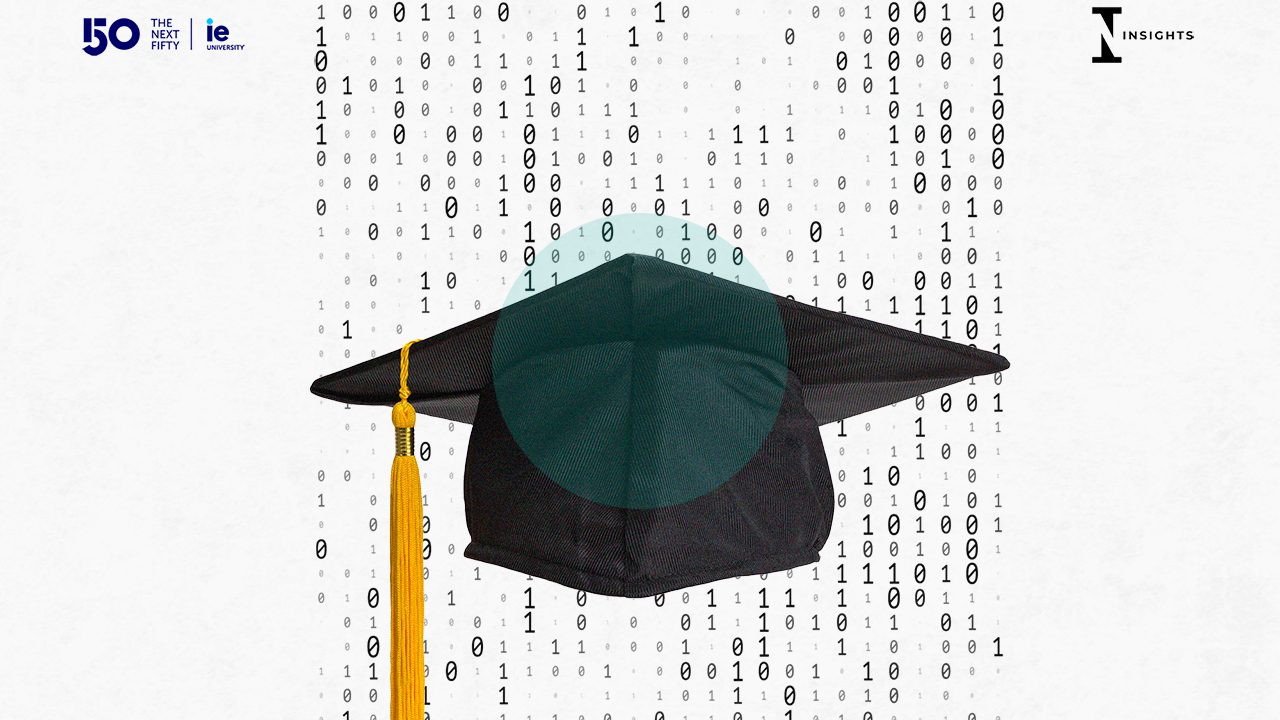Link copied
IE insights - IDEAS TO SHAPE THE FUTURE - Education

Education in 2050
Self-guided learning, personalization of courses, and an increased focus on value for money will drive the future of education.
It has been slow in coming, but disruption in education is accelerating rapidly. Digital technologies and evolving attitudes are set to drive a radical transformation and disintermediation by 2050. They will overturn the medieval model of universities – as well as antiquated approaches to schooling and lifelong learning.
The first change will be more compelling and effective ways to learn online and in hybrid formats. Technology will enhance if not replace traditional classroom learning with new ways to explain topics, provide regular “low stakes” tests to track comprehension, and adapt learning accordingly to help students progress.
There will still be a vital role for humans and teachers and tutors to track, support, engage, and empathize, but much more learning itself will be self-guided with increasingly high-quality content and pedagogical tools.
Second will be greater personalization – and not just in the pace and structure of individual lessons. For too long, students have been restricted by the “bundling” of courses at their educational institutions, based more on the schedules, preferences, and availability of faculty than by their own priorities or interests; and by traditional silos created by academic subjects.
Interdisciplinary studies are more compelling and relevant for many subjects and students, and ever more important in driving scientific advances in fields such as environmental science and sustainability. While there will still be a need for foundational courses onto which to build more specialist ones, technology will allow more scale, choice and intermarriage of ideas.
Third will be a growing search for quality and value for money in courses, leading to the greater disintermediation of universities themselves. That will partly be driven by the rising cost of education, and growing concerns about the consequent social inequity it creates.
Why accept in-person teaching at a mediocre institution when universities’ offerings can be unbundled and students pick courses offered online by the best world class experts? Breaking up delivery in this way will require greater flexibility in the regulation of teaching, marking, and granting of qualifications and a willingness by the best teachers and their universities to share. But the value of their respective brands and the reach technology can provide will support their spreading influence.
That should accentuate a focus on excellence in teaching alongside research, on which too much weight is often placed by existing institutions. The results may be surprising. Some less prestigious universities may emerge as far stronger than their more elite peers, where students often find their course support is from teaching assistants rather than professors.
These changes will likely not see the crumbling of Oxbridge, the Sorbonne, Pisa, the Ivy League, or other elite institutions: their reputations have been built over centuries, and their capacity to attract the best brains and manage substantial resources will last. Their grip may even be enhanced as they use technology to engage more actively with their alumni more interested in life-long learning, and convene a broader range of speakers and students.
But educational disruption will foster greater democratization in access and more flexibility in training to far wider groups of individuals throughout their lives. It will open up access to education to different levels of society, and reflect the growing needs for adaptation during an evolving lifetime of work and leisure.
The march of technology is not neutral: while it has benefits, it will bring many practical and ethical questions. Alienation through limited human interaction, the risks of violations of privacy in learning, and the wider stresses of mental health will all require the balance of a more humane human touch.
That will spark demand for new forms of in-person contact, new experiences during periods away from work or home, and new formats partly disconnected from formal learning – or connected to it in different ways. That is where some of the greatest innovation and human creativity will be required.
© IE Insights.
